A shocking revelation that sheds a whole new light on the great escape from the Stalag Luft III prisoner of war camp has been discovered in the National Archives.
The escape was immortalized in the 1963 film, starring Steve McQueen, Donald Pleasance, James Garner and Richard Attenborough.
But the truth behind the legendary love at first sight for freedom was far too dark for Hollywood.
Almost all Allied participants in the planned escape were captured and many were murdered by the Nazis. The Times reports.
Until now, historians have viewed the capture of these men as the unfortunate consequence of a high-risk plan, but one survivor’s suspicions suggest a more sinister turn of events.
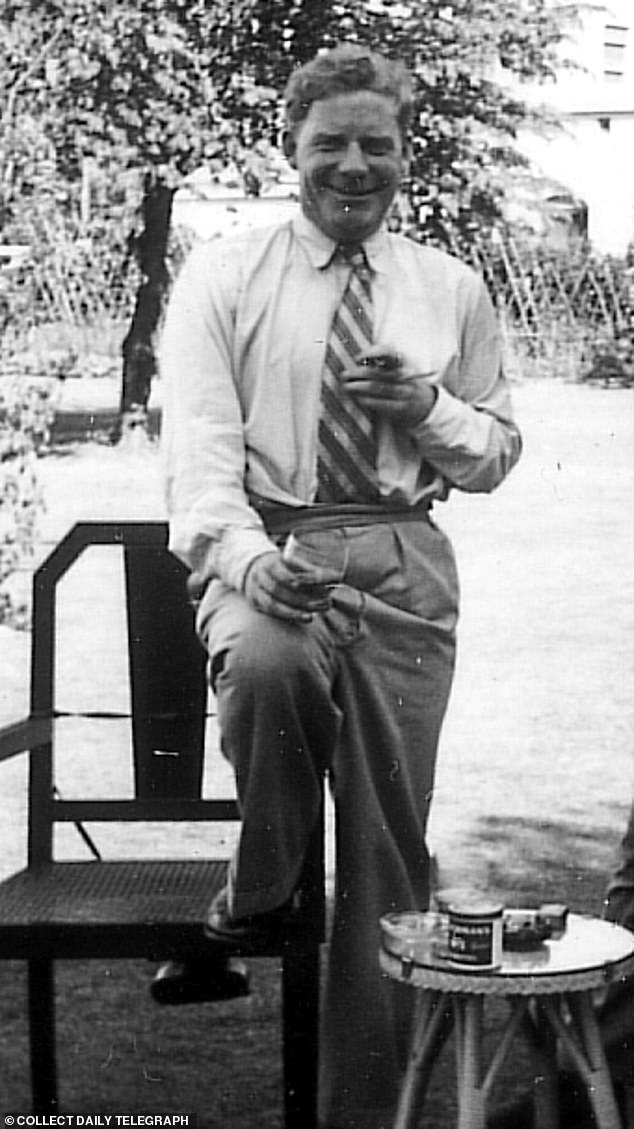
Cartographer Desmond Plunkett (pictured), who lived to the age of 86, was the 13th unlucky Allied airman to flee Stalag Luft III in what became known as “the Great Escape”.
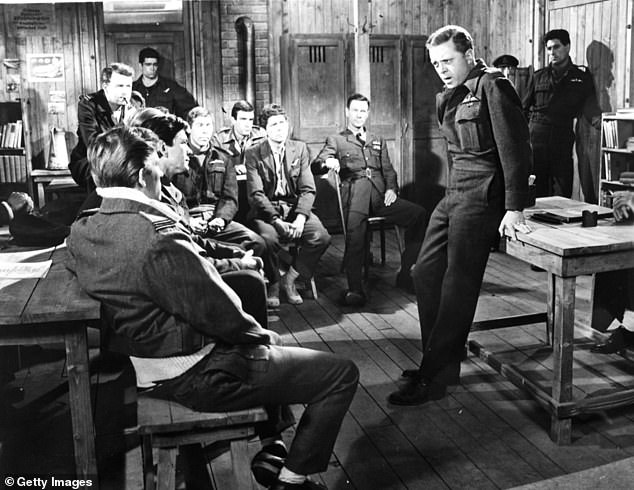

Charles Bronson, James Coburn and men listening to Richard Attenborough in a scene from the film “The Great Escape”, 1963
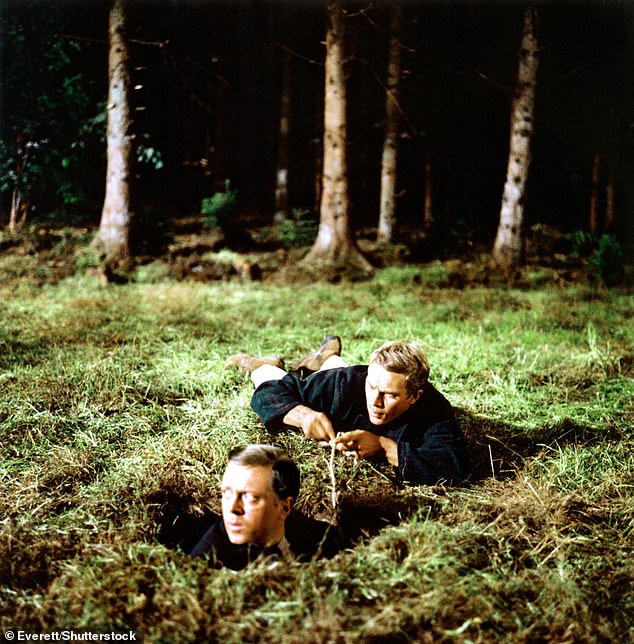

Richard Attenborough (left) and Steve McQueen (right) re-enact the men’s escape from Stalag Luft III in The Great Escape (1963)
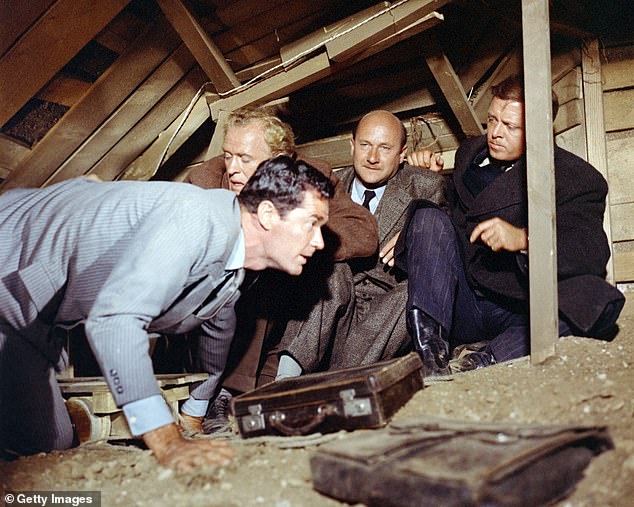

James Garner (Hendley), Gordon Jackson (MacDonald), Donald Pleasence (Blythe) and Richard Attenborough (Bartlett) in The Great Escape
A document recently released by the National Archives shows the account of Flight Lieutenant Desmond Plunkett, the cartographer and 13th man to escape from the camp.
In it, Plunkett told British authorities that two anonymous English double agents were responsible for betraying the project to Nazi captors, sentencing dozens of their fellow prisoners to death.
This strange discovery comes as the 80th anniversary of the Great Escape approaches, on the night of March 24, 1944.
The group of 76 prisoners spent a year digging tunnels out of Stalag Luft III and fled the camp, but only three of them escaped without being caught. The others were recaptured and 50 were executed on Hitler’s orders.
The 1963 film The Great Escape used Plunkett as inspiration for Donald Pleasance’s character Colin Blythe. He constructed more than 2,500 maps for the heist and volunteered to be the 13th man out of the camp because the unlucky number scared the other inmates.
Plunkett barely survived the war after being arrested by the Gestapo near the Austrian border. He was transported to Stalag Luft I and liberated at the end of the war.
On his release, he was given a questionnaire as was customary for prisoners of war – and it was this questionnaire that was discovered.
In it, he makes his explosive claims about the mysterious double agents who he believed had sabotaged the escape.
He wrote: “There are two individuals…whose activities had a direct bearing on the fate of the 50 executed prisoners of war.
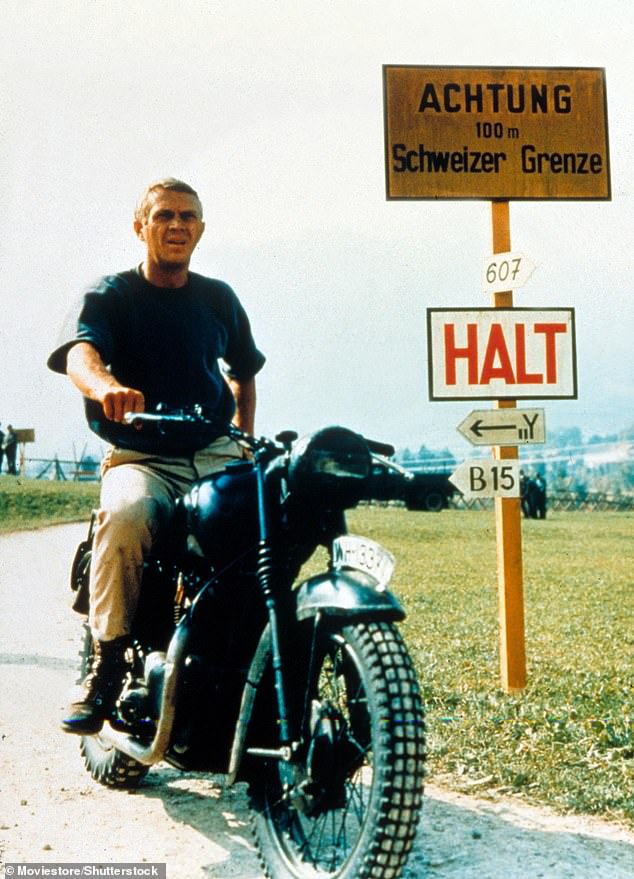

Steve McQueen in The Great Escape
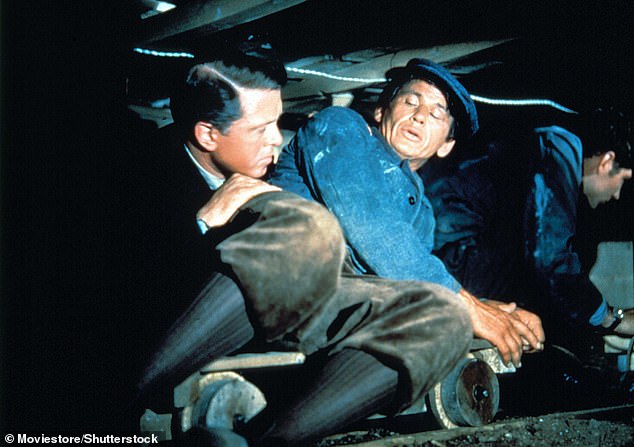

Richard Attenborough and Charles Bronson filmed as two British prisoners of war during the Great Escape
“These two people must be found, as both are undoubtedly native Englishmen, and must be tried for their activities in collaboration with the enemy.”
Plunkett also feared that the information he had provided during his interrogation by the Gestapo had led to the deaths of the 50 captured men.
Will Butler, a military expert at the National Archives, said: “Some suggest he blamed himself for the execution of the 50 by accidentally saying something during an interrogation. »
However, Plunkett’s comrades assured him that the escape had been foiled long before he was arrested at the Austrian border.
Other historians suggest that Plunkett’s “curious” claim shows more of the mental toll of prison and interrogation than any actual evidence of sabotage.
Guy Walters, author of The Real Great Escape, points out that Plunkett did not repeat this allegation in his book and that it may have been a paranoid suspicion brought on by a nervous breakdown after his brutal treatment by the Gestapo.
Walter added that it was “difficult to see” how the actions of two internal traitors could have led to the killing of the 50 men once they escaped the camp.
He added: “I think Plunkett is wrong.”
James Holland, another World War II historian, believes that it was almost impossible for a group of Englishmen to avoid detection in Nazi Germany without help – and this was probably the reason for the capture of the group of 50 men.
Holland agrees that Plunkett’s suspicions stem from a “tortured mind” rather than any serious motive for a conspiracy theory.
The document was recovered as the National Archives prepares to host its Great Escapes: Remarkable Captives of the Second World War exhibition.
Another feature of the questionnaire is one written by Donald Pleasance himself, who volunteered for the RAF despite being a successful actor.
Playing a prisoner of war in The Great Escape probably came naturally to Pleasance, who was himself a prisoner after his capture in 1944 when his RAF bomber was shot down in France.
